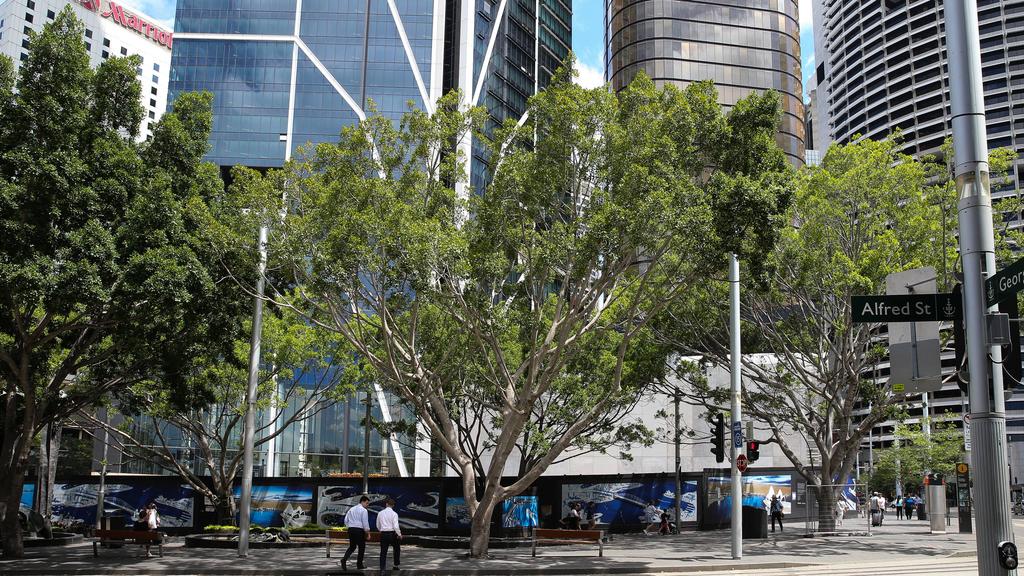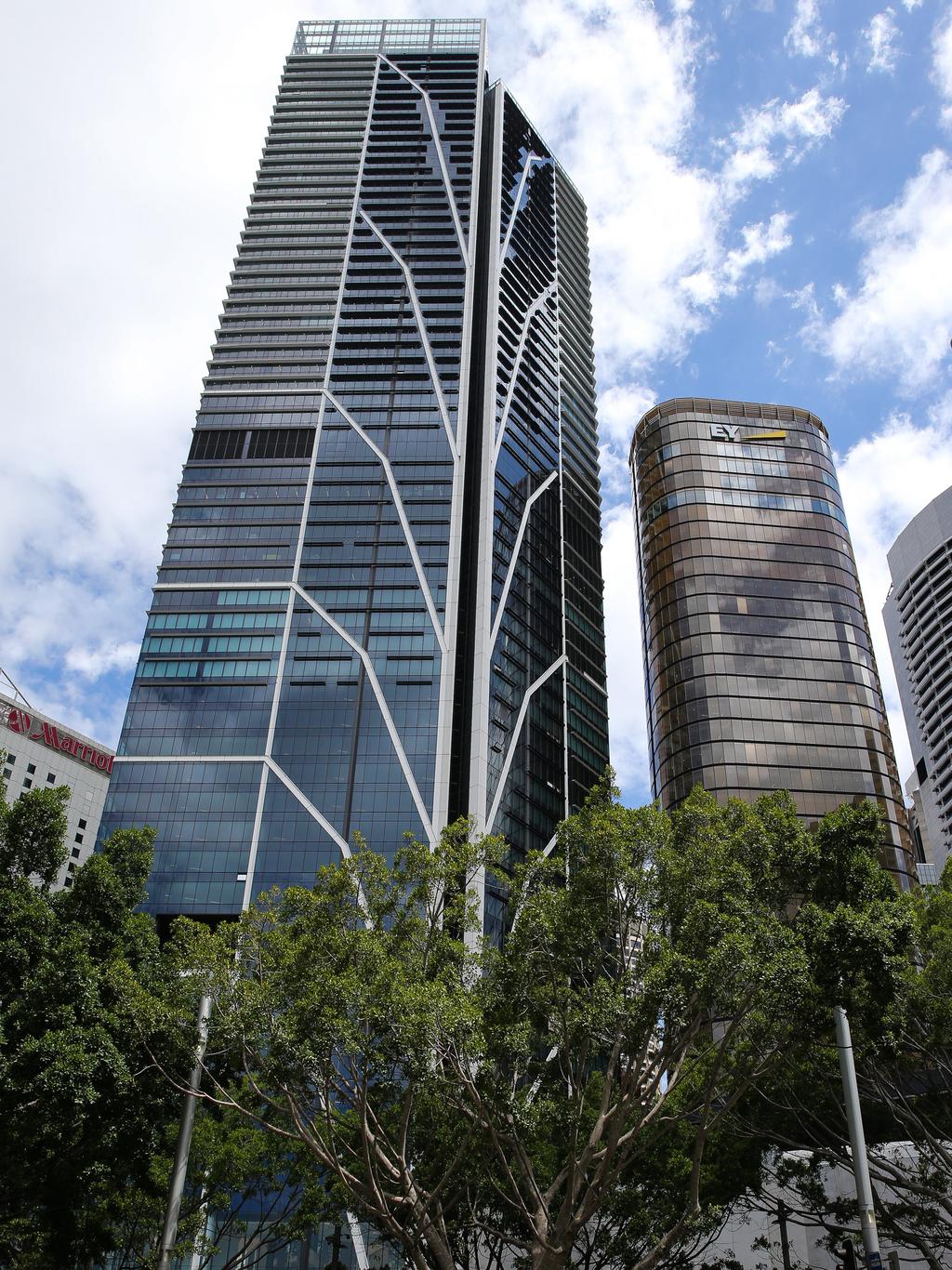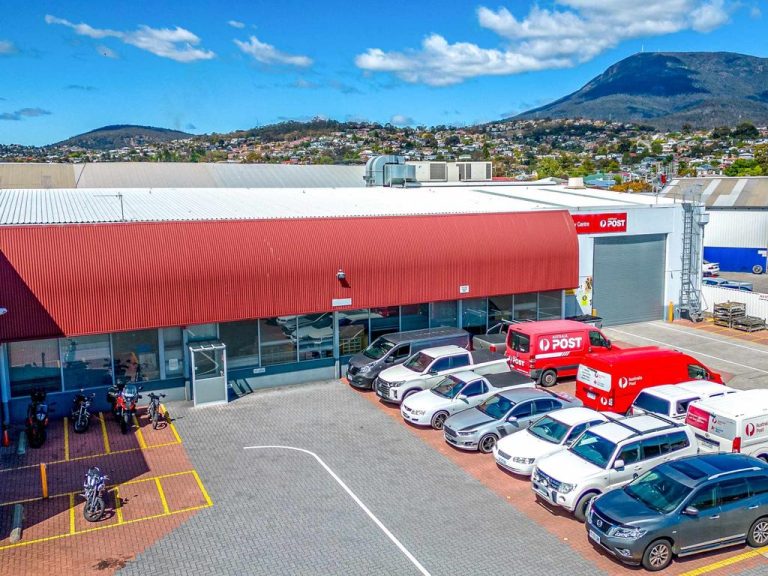Asian capital chases a safe home in Salesforce Tower

Now branded Salesforce Tower, the office building at the development is the city’s tallest commercial tower, and the process is being handled by real estate agencies Cushman & Wakefield and Savills. Picture: NCA NewsWire/ Gaye Gerard
Asian capital is chasing major Australian commercial property assets, with big name players circling a slice of the Sydney Place development at the city’s Circular Quay in a deal worth about $1.1bn.
The stake in the tower is being sold by Chinese company Ping An Real Estate and interest in the 50 per cent holding it is offering has come out of the region, where skyscraper values are holding up.
Now branded Salesforce Tower, the office building at the development is the city’s tallest commercial tower, and the process is being handled by real estate agencies Cushman & Wakefield and Savills.
UK funds house M&G, Singapore companies Keppel and OUE, as well as Hong Kong’s Link REIT, have been tied to the tower, but the deal is being kept under wraps.
The British group, which has a major Asian fund, is believed to be the sharpest bidder for the complex, with the pricing tipped to show a capitalisation rate, used to measure property values, effectively under 5 per cent, once a management fee to developer Lendlease is taken into account.
The impending deal shows that big players are still hunting out Australian offices at a time when the sector is under pressure globally due to tough operating conditions in the northern hemisphere.
While office vacancy has bumped nationally, the top end of the market is performing with prime towers still drawing top tenants nationally, and landlords say the market is adjusting to hybrid working.
If a deal can be sealed on the tower, it will support the concept that local offices can hold their values and more active market conditions can emerge.
Recent deal-making shows that prices have fallen by 10-15 per cent, rather than the much steeper declines seen in the United States. Deal time frames are also extended but more office stock is also coming to market.

Salesforce Tower at Sydney’s Circular Quay Sydney. Picture: NCA NewsWire/ Gaye Gerard
Investa is putting 117 Clarence St tower in Sydney’s CBD on the block for about $160m via Cushman & Wakefield and Knight Frank. It is expected to garner strong bids as few assets have been offered at this level. Private and international groups are also selling blocks in North Sydney and Parramatta.
The transactions and others in major capitals show there is still this demand for local offices and prices for prime buildings can be struck at capitalisation rates of below 5 per cent.
A Moody’s report on Australian real estate investment trusts warned that higher-for-longer interest rates meant weaker interest cover and asset value declines in the sector but it said that major companies had buffers.
The agency stress tested the portfolios of listed groups for asset price declines of up to 15 per cent on top of the falls that have already occurred since the start of the pandemic.
“Given that vacancy levels for office remain above historical averages, we expect the highest value declines for office assets. In this scenario, rated A-REITs on average will still have around 25 per cent headroom against the high end of their target gearing levels,” Moody’s said.
Morgan Stanley analysts Lauren A Berry and Simon Chan said the headwinds facing the office sector had stemmed from concerns about asset valuations.
They said that while the debate about values may soon have some answers as transactions return, they cited “real concern” for offices around the traditional drivers such as supply, demand, vacancies, and employment.
They cautioned that with Sydney and Melbourne vacancy rates hovering at 20-year highs, and developments adding new space to the market when leasing demand was uncertain, there was not a pathway to material improvement in rents and incentives being paid by landlords in the short term.
They said that while the volume of supply was roughly in line with long-term averages, the concern in this cycle was the low level of precommitments to new towers.
Landlords are hoping that a coming wave of transactions will settle the market.







